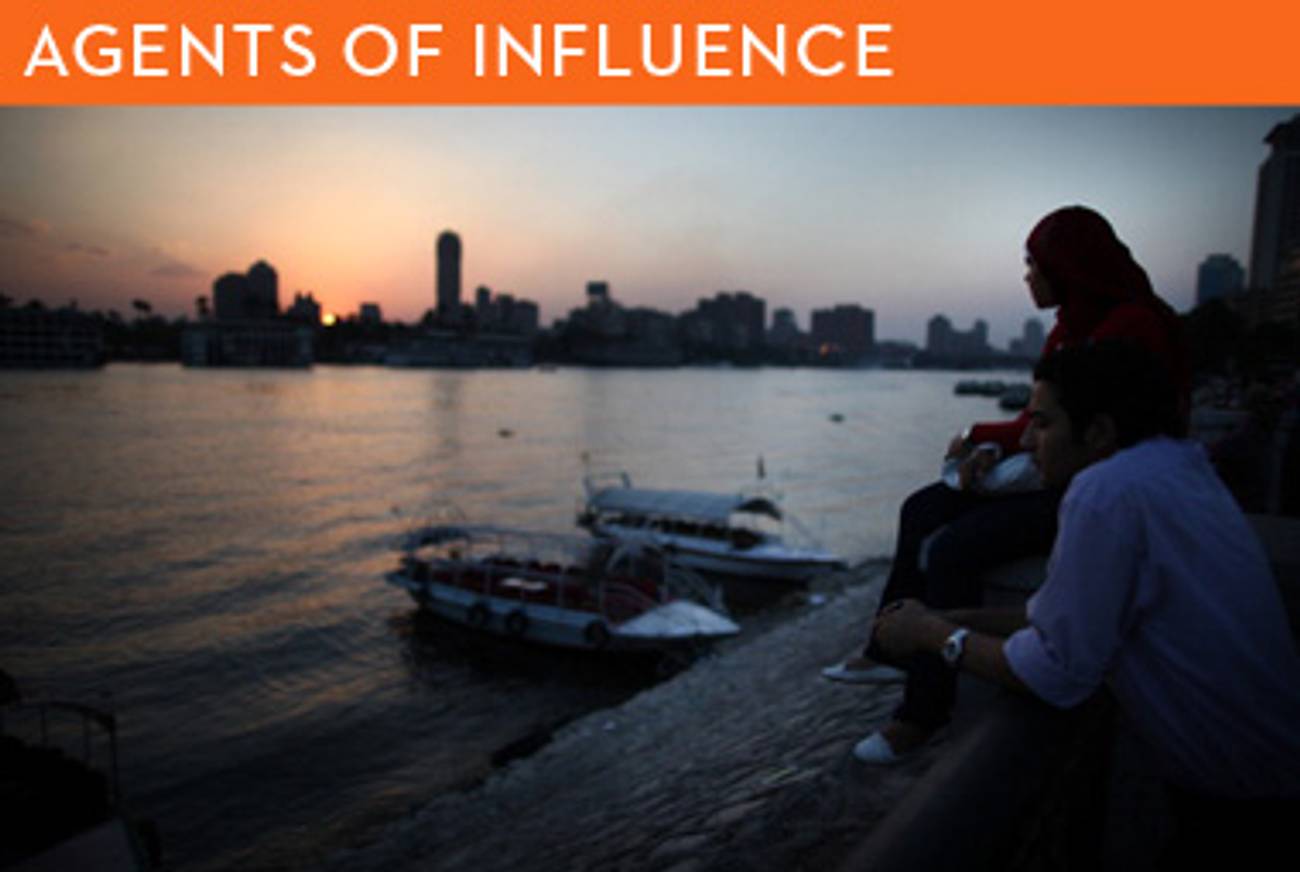Post-Revolutionary
The Egyptian protests that overthrew Hosni Mubarak failed to change the underlying realities of military domination, entrenched anti-Semitism, and limited foreign policy options




Hosni Mubarak was not a good guy, nor was he a particularly clever man. He jailed peaceful opponents and led a security establishment that tortured innocents. He ruled Egypt for over 30 years, which is far too long by anyone’s standards. It is to the credit of the Egyptian people, often regarded as slavish, that they rebelled against this indignity.
But one question still remains: What were they fighting for?
This weekend, Egypt reopened the Rafah crossing into the Gaza strip, which is perhaps a sign that it is time for a reassessment of Egypt’s recent revolution and the legacy of the man it brought down. Hosni Mubarak was considered a U.S. ally because he shared many of our country’s stated interests, including stopping Hamas, a group despised by Mubarak and his security chief, Omar Suleiman. The two men stood against the armed Palestinian resistance movement because they feared their own Muslim Brotherhood, a like-minded counterpart to Hamas, and Iranian expansion, which they saw as a by-product of Hamas’ power.
But Mubarak’s Egypt is no more—the military still rules as it did behind the veneer of Mubarak’s National Democratic Party, but Cairo can no longer afford to be a stable U.S. ally. Mubarak has been charged with the capital crime of killing protesters during the revolution, along with assorted lesser crimes. The question then is whether the reportedly ailing Mubarak will die before the state can execute him—maybe it will be done quietly or perhaps, with a flourish, in the middle of Tahrir Square. Egypt’s rulers will spill the blood of Mubarak and his sons when they have nothing else with which to satisfy the hunger of the revolution—which is happening in the middle of an economic crisis that will make it difficult to feed a country of 83 million people.
Maybe someday there will be an accounting of all the fictions that determined our understanding of the Egyptian revolution as it unfolded. In retrospect, it is strange that an American intellectual and political class proved so credulous during the uprising. The Egyptian media and government officials are well-known for a casual relationship with the truth, as well as a tradition of anti-Semitism in the government-owned and independent presses. It was Egyptian officials who claimed that a shark attack on German tourists in the Sinai was engineered by the Mossad, a fable regarded by the U.S. intelligentsia as darkly humorous evidence of an abnormally thwarted culture incapable of distinguishing between reality and a bogeyman engendered by fearful, childish, systemic anti-Semitism.
And yet the international media took every word that came out of the Egyptian street during the revolution as the absolute truth. For instance, there was the notion that the violence of the revolution resulted from Mubarak’s order for the police to leave their posts and throw open the jails. That such an order would be followed throughout the chain of command would be a remarkable feat in a country not known for its bureaucratic efficiency. It seemed not to occur to reporters and policymakers that in the midst of general chaos—and Egypt is chaotic in its nature—many policemen may have simply left their posts for fear of being overrun by revolutionary mobs.
The people who fought with the police in the streets those first few nights seem to have been the same who later turned to violence against the demonstrators as well as the press. But this, too, was blamed on Mubarak, for these people were assumed to be thugs in his hire, as were the men who rode the horses and camels down from the Pyramids. Maybe, as New York Times columnist Nicholas Kristof wrote, it really was pro-Mubarak thugs responsible for the violence against the international press, but there are plenty of other Egyptian outfits hostile to free media, like the Muslim Brotherhood. According to Kristof, however, the Muslim Brotherhood is no worse than the Republican party. Pro-Mubarak thugs were even blamed for the rising tide of violence in post-Mubarak Egypt.
Mubarak was faulted for the anti-Semitism in the Egyptian media and for empowering Islamists while crushing the liberal movement. The facts, sadly, are otherwise. It is true that Mubarak had thrown certain liberals in jail, like the former presidential candidate Ayman Nour, but the former president is hardly responsible the absence of a genuine liberal culture in Egypt. Mubarak did not empower Islamists; he fought them tooth and nail for two decades, and they tried to kill him in Sudan. The reason that the Muslim Brotherhood still exists in spite of Mubarak’s ruthlessness is that Islamism is a powerful political current that represents the flower of Arab modernity and will always have a constituency in Muslim-majority countries. Nor is Mubarak responsible for anti-Semitism in the Egyptian press: The unpleasant reality is that the country and the surrounding region would be anti-Semitic if Mubarak had never been born.
None of these facts seemed to matter—not to the revolutionaries, of course, but neither to the U.S. intelligentsia, even as the narrative fit a familiar pattern. During the revolution, Mubarak came to play the role that Israel and the United States typically play in Egypt: He was the source of all evil. It is only now, as dissatisfaction with the army mounts, that the Egyptian revolutionaries are coming to recognize that the army they welcomed in Tahrir as brothers have always held the real power in Cairo.
The strange fact is that Mubarak was a reformer. Or at least he was considered so by the World Bank and the IMF, which gave Egypt high rankings over the last half decade. The army shared a common goal with the revolutionaries in bringing down Mubarak because it, too, did not want the president’s son Gamal to succeed him, lest he take a cut out of their lucrative business enterprises.
Since the country’s 2004 economic reforms, spearheaded by Gamal Mubarak and his band of technocrats, the country’s economy grew at an average of 7 percent annually. While the common charge is that the country’s economic miracle didn’t trickle down to the lower classes, the inequality index held steady. Moreover, it is not the rural or urban poor who engineered the revolution, but rather a large segment of middle-class youth enjoying the economic upturn who took to the streets on behalf, as they claimed, of all Egypt.
It’s fine if we want to chuck out IMF and World Bank benchmarks for reform, but if we are going to judge a country’s political system according to how many people social media networkers can put on the streets then that is going to mean something different for U.S. Middle East policy. In the case of Egypt, it means American taxpayers are expected to pick up the tab for someone else’s street theater.
The $2 billion that Washington has been giving Cairo every year for 30 years is essentially a bribe to convince Egypt not to shoot itself in the head by going to war with Israel. But the problem isn’t just that 1981 money doesn’t cover 2011 bills. Since the revolution, tourism, one of the country’s major sources of revenue, is way down due to the instability and ongoing violence, including several attacks against Coptic Christians, and $13 billion in foreign exchange reserves has fled the country. Egypt is not going to woo back foreign investors at this point, not just because of instability but because the policy is associated with the once-ruling family now on trial for its life.
So, how does Egypt, the world’s largest importer of wheat, feed itself if prices continue to rise because of a severe drought in China, the world’s largest exporter of wheat? Egypt’s new rulers need to show—by opening up Rafah, letting Iranian ships pass through the Suez Canal, brokering a reconciliation deal between Hamas and Fatah—what a new Egypt could look like, one that would threaten to spin dangerously out of the U.S. orbit unless the Americans pay up.
This gambit is nothing new for Egypt, which performed the same ballet under Gamal Nasser during the early years of the Cold War. Nasser used the United States and the USSR against each other to get what he wanted—prestige, power, and American money. It worked even after he concluded the 1955 deal for Czech (i.e., Soviet) arms. Sure, U.S. Secretary of State John Foster Dulles refused to fund Nasser’s Aswan Dam project, for which the Soviets eventually footed the bill. But in 1956, Washington still thought highly enough of Nasser to demand that their British, French, and Israeli allies withdraw their invasionary forces from Egypt after Nasser nationalized the Suez Canal. Only in the aftermath of the 1973 war with Israel did Egypt, now under Anwar Sadat, ally itself with the United States, a deal that Mubarak kept faithfully for 30 years.
Of course there is no longer a superpower rivalry, which is good for U.S. strategy in the big picture. But Egypt’s brinksmanship will still present plenty of headaches. Iran is not going to give the Egyptians money; and even if the Saudis don’t renege on the $4 billion they’ve promised Cairo, that’s hardly enough. The only place to turn is Washington, but the $1 billion in debt relief and the other billion in investment we’ve promised is evidence we don’t have the cash either.
Without bread, Egypt will turn to spectacles, and so the Mubaraks will probably hang. And after Egypt has purged itself of that evil, it will turn again to the evil that has plagued the Egyptian imagination since 1948: the Zionists and their backer in Washington. Cairo, say Western rationalists in the press and policy circles, knows it would lose any war with Israel and does not want to forfeit that $2 billion a year from the United States. But there are many other factors that will shape the thinking in Cairo in the months and years to come, and there is nothing rational about a society whose authorities believe that the Mossad exerts secret mind-control over sharks.
Lee Smith is the author of The Consequences of Syria.
Lee Smith is the author of The Permanent Coup: How Enemies Foreign and Domestic Targeted the American President (2020).